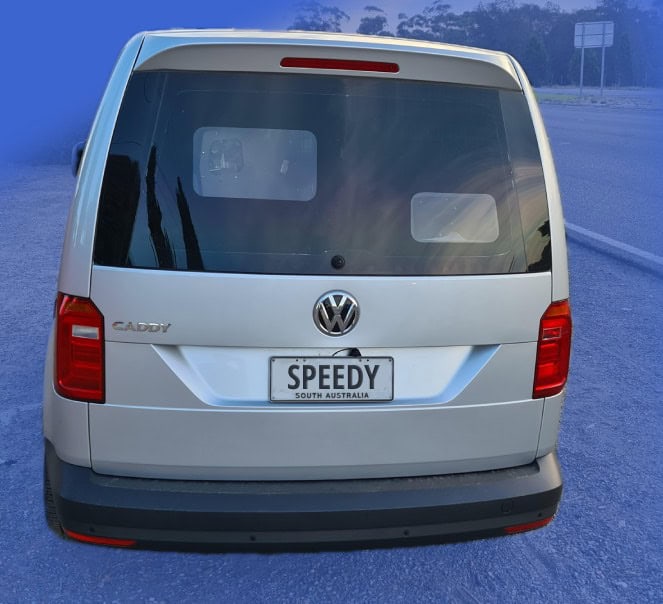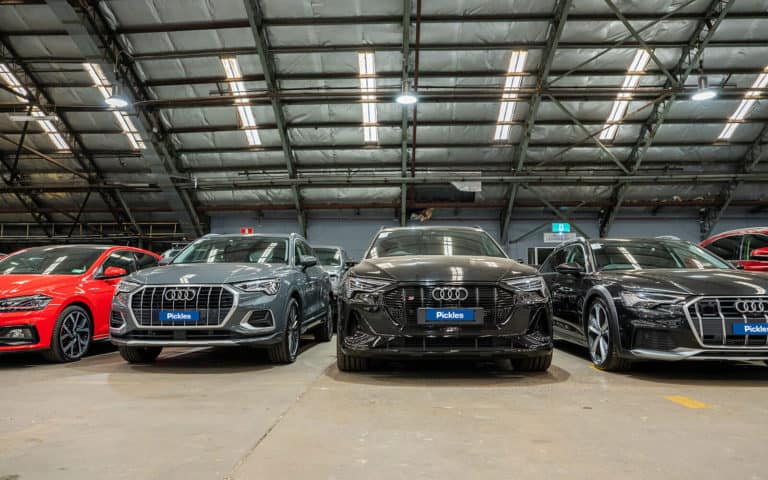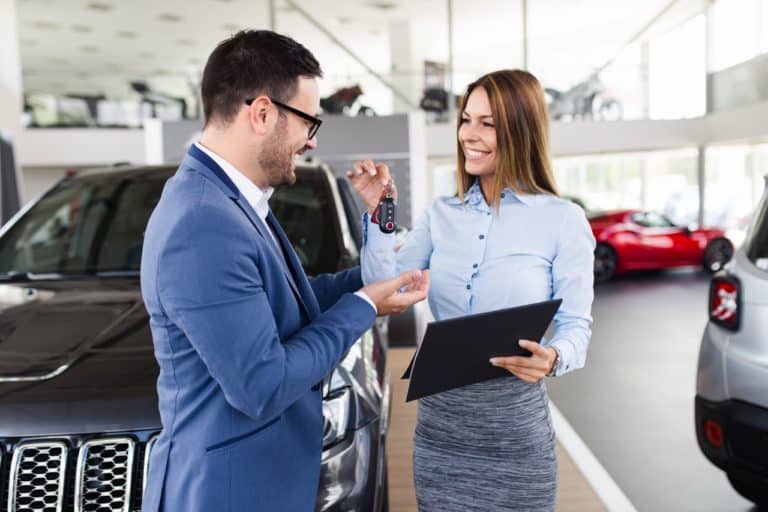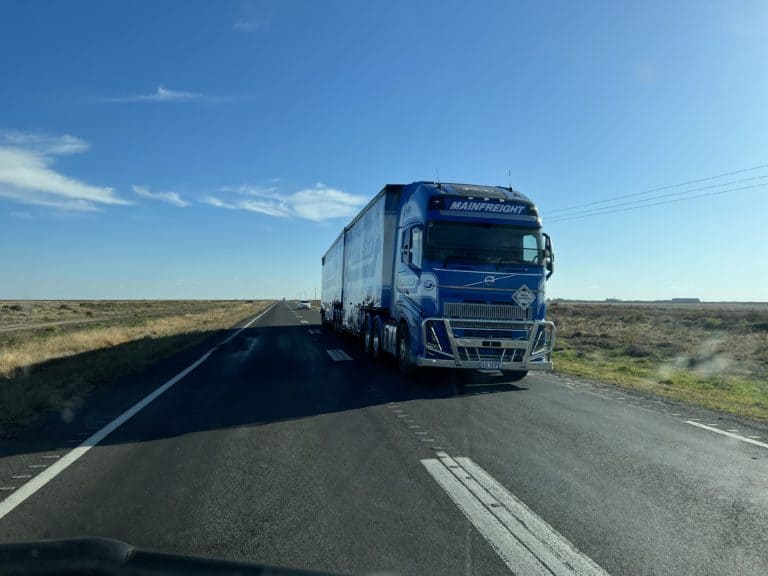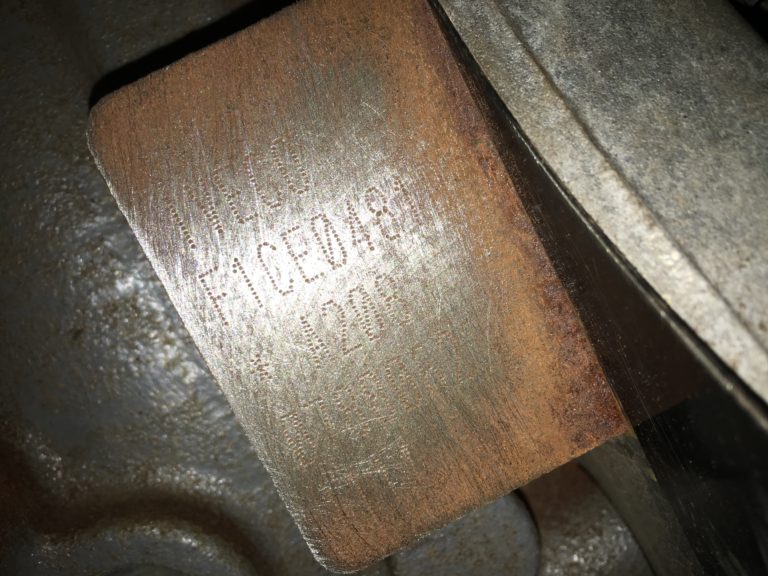Chances are, you’re buying your used car wrong.
When it comes to buying a used car, most of the time, things go smoothly. You exchange the funds, get the keys, and drive off into the sunset with your “new to you” car. You’ve done it plenty of times and you’ve never had a problem and chances are, you’ll be ok. But when buying a used car goes wrong, it goes horribly wrong.
I want to start by saying, I’m not a lawyer, and in no way am I offering legal advice. What I can offer, though, is decades of experience in the motor industry. I’ve been involved in the buying and selling of thousands of cars—everything from private sales to dealers, auctions, wholesalers, and all the weird in-between scenarios you can imagine.
When it comes to buying a car, especially if you’re financing it, the finance company is likely doing a lot of the heavy lifting for you. Why? Because, at the end of the day, they’re buying the car, not you.
Unlike real estate, there’s no official record of ownership for cars in Australia. Many people mistakenly think the registration papers are proof of ownership, but that’s not the case. In fact, it even says on the papers that registration does not prove ownership. So, what does?

What you need to know when buying a car from a private seller
If you’re buying from a private seller (or a company that’s not a dealer), there are a few key steps you need to follow to ensure things are above board. Here’s what I’ve learned over the years:
- Physically See the Car
This is non-negotiable. Whether you do it yourself or have an independent inspection done, you need to physically see the car and make sure it exists. A professional inspection can also uncover mechanical issues and hidden defects that might not be immediately obvious. Trust me, skipping this step can lead to nasty surprises down the road. All the data can match up and you can take all the steps below but if the car doesn’t exist what are you buying? - PPSR Check
This is one of the most important steps. A $2 PPSR check will tell you two things:- Is there finance owing on the car?
- Is the car stolen?
- Check the Documents
Make sure everything adds up. The car’s registration should match the address where you’re buying the car. The seller’s license should be current and on the registration documents. If there are discrepancies, ask for an explanation, its not always black and white. I always make it a point to take photos of IDs and any important documents for my records. - Private Sale Agreement
This is an absolute must. You should have a signed and filled-out Private Sale Agreement. The document should include all the essential details of the car (make, model, VIN, registration number, and mileage), the seller’s details (name, address, DOB, license number), and a statement confirming that the seller has the legal capacity to sell the vehicle. Make sure it’s signed and dated. Don’t worry—I’ll attach a template for you to use. Download Private Sale Agreement here
This document is important because this is the only document that will exist that proves that you bought the car when you purchase a car from a private seller. It’s like a proof of purchase receipt and it essentially proves ownership. If you buy from a new or used car dealer you will have a contract of sale and a tax invoice to prove ownership.
What happens if finance is owing?
This has always been the trickiest part, because there are so many ways this can go wrong. If there’s finance owing on the car, do not give the money to the seller with the promise they’ll sort it out. Instead, you need to pay the outstanding finance directly to the bank or finance company. It gets messy, especially when the seller is selling the car for less than what is owed. In this case, they’ll need to pay the remaining balance to the bank or to you, and it might involve part payments from both you and the seller.
The seller must provide you with a payout letter (payout quote POQ) from the bank, which, weirdly, is private information protected under privacy laws. So, you can’t call the bank directly to verify the information on the POQ, but the seller is required to provide you with this document. Scammers can exploit this process, so be cautious.
What if you find out there’s finance owing after the purchase?
This is a tough situation to be in. If you check the PPSR after you’ve already bought the car and find out there’s finance owing, you might try contacting the seller to resolve the issue. But chances are, they already know about it and were hoping you wouldn’t check and I bet you paid cash for the car too.
If the loan remains unpaid, the lender can repossess the car because it’s still their asset. If this happens, you’ll either need to pay off the loan to keep the car or hand it back. Unfortunately, this isn’t a criminal situation, so the police can’t help you, and you’ll likely have to take the seller to court to recover your money… Good luck with that. It’s messy and stressful, but your best bet is trying to work things out with the finance company—they might be willing to come to an agreement with you.
What if the car is listed as stolen?
Again, this is something you should have checked via the PPSR, but if you end up with a stolen car (even though it wasn’t flagged at the time of the sale), your Private Sale Agreement and PPSR report will serve as evidence that you weren’t aware of the theft. If the car gets impounded by the police while they investigate, there’s a good chance you’ll get it back, and the seller will be held responsible. Unfortunately for the person that had the car stolen they will have to pursue the person that sold it to you for damages.
Financing a car can offer extra protection
If you’re financing a car, it can actually give you an extra layer of protection. The finance company and broker handle most of the paperwork, and they’re responsible for making sure everything is sorted. So, if something goes wrong, it’s their problem, not yours, and they usually have insurance to cover it. If you’re looking at a car worth over $20k, financing can simplify the process and make sure everything is handled properly.
Shameless plug here but if you’re thinking about financing a car let us give you a finance quote.
Wrapping it up
As I mentioned earlier, 99% of the time, everything goes smoothly. But it’s always better to be safe than sorry. With the rise of scams, especially on platforms like Facebook Marketplace, it’s crucial to be extra cautious. If a deal seems too good to be true, it probably is.
In Australia, there’s no official record of car ownership, which makes things a little more complicated. While the PPSR can show if there’s any financial interest in the vehicle and registration tells you who the operator is, you’re still relying on the seller’s word that they’re the actual owner or have permission to sell the car. It’s a strange system, and though it works most of the time, it’s unsettling to think about how ambiguous car ownership really is here. Thankfully, banks and finance companies are protected under the PPSR 
I hope this guide helps you take the right steps when buying a used car, so you can protect yourself from any unexpected issues down the road.




